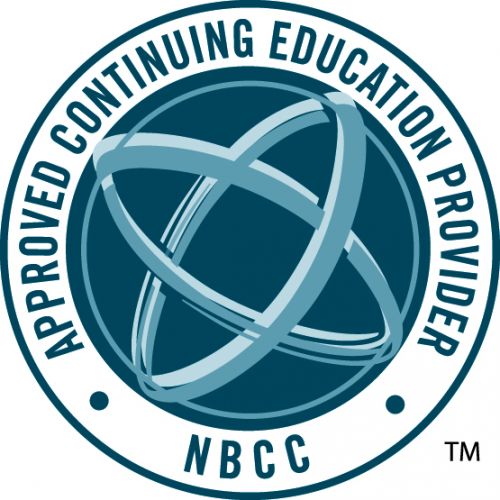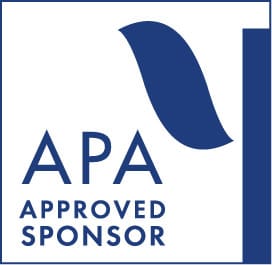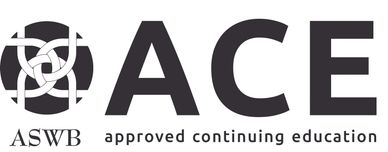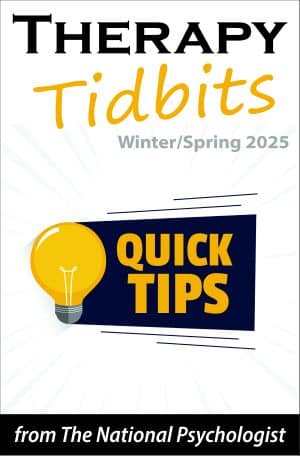- ADHD
- Adults
- Alternative Medicine
- Alzheimers & Aging
- Animal-Assisted Therapy
- Autism
- Behavior Therapy
- Child & Adolescent
- Closeout
- Communication
- Couples-Family-Parenting
- Cultural Diversity
- Depression & Anxiety
- Domestic Violence
- Ethics & Risk Management
- Gender Identity
- HIV-AIDS
- Human Trafficking
- Laws & Rules
- Medical Errors
- Mindfulness & Yoga
- Miscellaneous
- National Psychologist
- Nutrition & Fitness
- Pain Management
- Psychotherapy
- Sexuality
- Substance Abuse
- Suicide
- Supervision
- Trauma & PTSD
Mindfulness: The Healing Power of Compassionate Presence
Thomas Roberts, LCSW, LMFT
$69.00
 Intermediate
Intermediate
 Online
Online
Course Abstract
Mindfulness: The Healing Power of Compassionate Presence is a 6-hour online continuing education (CE) course that will give you the mindfulness skills necessary to work directly, effectively, and courageously with your own and your clients’ struggles.
Compassion towards others starts with compassion towards self. Practicing mindfulness cultivates our ability to pay intentional attention to our experience from moment to moment. Mindfulness teaches us to become patiently and spaciously aware of what is going on in our mind and body without judgment, reaction, and distraction, thus inviting into the clinical process, the inner strengths and resources that help achieve healing results not otherwise possible.
Bringing the power of mindful presence to your clinical practice produces considerable clinical impact in the treatment of anxiety, depression, PTSD, chronic pain, high blood pressure, fibromyalgia, colitis/IBS, and migraines/tension headaches. As you will learn, the mindfulness practice has to be experienced, rather than talked about. This course will provide you with an excellent understanding of exactly what mindfulness is, why it works, and how to use it. You will also develop the tools that help you introduce mindful experiences in your practice, and how to deal with possible client resistance.
Course #61-04 | 2021 | 90 pages | 35 posttest questions
Learning Objectives
- List three things that mindfulness is, and three things mindfulness is not
- Describe three mindfulness strategies that can improve client rapport and reduce resistance
- Distinguish between the psychophysiological effects of Big Deal Mind and Monkey Mind
- Explain two ways of being a mindful clinician to increase your confidence and empathy
- Summarize the connections between mindless living and the creation of many difficult-to-treat symptoms
- Identify ten valuable mindfulness skills you will be able to teach to your clients
- List five ways in which mindfulness can create balance, harmony, healing, and growth
- Name three ways to incorporate mindfulness practices into both your personal and professional life
Course Directions
This online course provides instant access to the course materials (PDF download) and CE test. The course is text-based (reading) and the CE test is open-book (you can print the test to mark your answers on it while reading the course document).
Successful completion of this course involves passing an online test (80% required, 3 chances to take) and we ask that you also complete a brief course evaluation.
About the Author(s)
Thomas Roberts, LCSW, LMFT : Find out More
Thomas Roberts, LCSW, LMFT, is a retired Psychotherapist and Clinical Hypnotherapist, who was the Director/Owner of Innerchange Counseling in Onalaska Wisconsin. He has over 40 years of experience in clinical psychotherapy and has been a practicing Zen Buddhist for nearly 50 years. In 1992 he received lay Buddhist vows from Thich Nhat Hanh. He is the author of The Mindfulness Workbook: A Beginners Guide to Overcoming Fear and Embracing Compassion (New Harbinger Press, 2009). Thomas was an adjunct professor at Viterbo University in La Crosse, and St. Cloud State University, where he taught several courses. Thomas has become a leader in the fields of mind-body healing, clinical hypnotherapy, and mindfulness. He continues to teach as a visiting lecturer at the University of Wisconsin and presents retreats & workshops throughout the United States. You may visit his website at thomasrobertsllc.com.
Financial: Mr. Roberts receives royalty payments from Professional Development Resources on sales of his courses.
Non-financial: Mr. Roberts is the creator of the CenterPoint© Breathing Technique, which is presented in this course so that the reader may use it when working with clients.
CE Information
Counseling

Professional Development Resources (PDR) has been approved by the National Board for Certified Counselors (NBCC) as an Approved Continuing Education Provider, ACEP No. 5590. Programs that do not qualify for NBCC credit are clearly identified. PDR is solely responsible for all aspects of the programs.
Professional Development Resources is CE Broker compliant (#50-1635 - all courses are reported within two business days of completion). Professional Development Resources, Inc. is recognized by the New York State Education Department’s State Board for Mental Health Practitioners as an approved provider of continuing education for licensed mental health counselors (#MHC-0135 - Note: New York counselors will receive 6 continuing education credits for completing this self-study course).
Marriage and Family Therapy

Professional Development Resources is approved by the American Psychological Association (APA) to sponsor continuing education for psychologists. Professional Development Resources maintains responsibility for this program and its content. Professional Development Resources is also approved by the National Board of Certified Counselors (NBCC ACEP #5590); the Association of Social Work Boards (ASWB #1046, ACE Program); the New York State Education Department's State Board for Mental Health Practitioners as an approved provider of continuing education for licensed marriage and family therapists (#MFT-0100 - Note: New York MFTs will receive 6 continuing education credit(s) for completing this self-study course); the Texas Board of Examiners of Marriage and Family Therapists (#114); and is CE Broker compliant (#50-1635 - all courses are reported within two business days of completion).
Occupational Therapy

Professional Development Resources is an AOTA Approved Provider of professional development. Course provider ID# 3159. This distance learning-independent course is offered at 0.6 CEUs, intermediate level, OT Service Delivery]. The assignment of AOTA CEUs does not imply endorsement of specific course content, products, or clinical procedures by AOTA.
Professional Development Resources is CE Broker compliant (#50-1635 - all courses are reported within two business days of completion).
Psychology

Professional Development Resources is approved by the American Psychological Association (APA) to sponsor continuing education for psychologists. Professional Development Resources maintains responsibility for this program and its content.
Professional Development Resources is CE Broker compliant (#50-1635 - all courses are reported within two business days of completion). Professional Development Resources, Inc. is recognized by the New York State Education Department’s State Board for Psychology as an approved provider of continuing education for licensed psychologists (#PSY-0145).
School Psychology

Professional Development Resources is approved by the American Psychological Association (APA) to sponsor continuing education for psychologists. Professional Development Resources maintains responsibility for this program and its content.
Professional Development Resources is CE Broker compliant (#50-1635 - all courses are reported within two business days of completion). Professional Development Resources, Inc. is recognized by the New York State Education Department’s State Board for Psychology as an approved provider of continuing education for licensed psychologists (#PSY-0145).
Social Work

Professional Development Resources, #1046, is approved as an ACE provider to offer social work continuing education by the Association of Social Work Boards (ASWB) Approved Continuing Education (ACE) program. Regulatory boards are the final authority on courses accepted for continuing education credit. ACE provider approval period: 6/12/2022 - 6/12/2025. Social workers completing this course receive 6 clinical continuing education credits.
Professional Development Resources is CE Broker compliant (#50-1635 - all courses are reported within two business days of completion). Professional Development Resources, Inc. is recognized by the New York State Education Department's State Board for Social Work as an approved provider of continuing education for licensed social workers (#SW-0664 - Note: New York social workers will receive 6 continuing education credit(s) for completing this self-study course). Professional Development Resources is also approved by the Texas State Board of Social Worker Examiners (#5678).
Teaching
Professional Development Resources is approved by the American Psychological Association (APA) to sponsor continuing education for psychologists. Professional Development Resources maintains responsibility for all programs and content. Professional Development Resources is also approved by the National Board of Certified Counselors (NBCC ACEP #5590); the Association of Social Work Boards (ASWB Provider #1046, ACE Program); the Continuing Education Board of the American Speech-Language-Hearing Association (ASHA Provider #AAUM); the American Occupational Therapy Association (AOTA Provider #3159); the Commission on Dietetic Registration (CDR Prior Approval Program); the New York State Education Department’s State Board for Psychology as an approved provider of continuing education for licensed psychologists (#PSY-0145), State Board for Mental Health Practitioners as an approved provider of continuing education for licensed mental health counselors (#MHC-0135) and marriage and family therapists (#MFT-0100), and the State Board for Social Workers as an approved provider of continuing education for licensed social workers (#SW-0664); the Texas Board of Examiners of Marriage and Family Therapists (#114) and State Board of Social Worker Examiners (#5678); and is CE Broker compliant (#50-1635 - all courses are reported within two business days of completion).
Customer Testimonials
Good Job, I've been practicing mindfulness for some time and teaching it to clients. This will definitely add to my skill set.
Great course. Would highly recommend it. Amazing to learn about the heart brain.
I found this to be an excellent presentation: engaging, highly informative, with touches of humor and wonderful stories and examples.
I'm printing the course, as I find it comprehensive and well-written. I wish you had more courses focused on wellbeing. I enjoyed this course!
This online course was very informative. It was easy to follow the instructions on how to read the material and to take the test. I will definitely take more PDR courses.
More Testimonials
As a person who practices yoga already and recommends it to my clients, I found this an excellent complement to my clinical work and personal life.
Really enjoyed this course. Excited to share what I learned with staff and clients.
I loved this course. Useful tips, and the teaching very clear (not wordy or full of case studies). I used it to relax myself. Excellent. I’ll look forward to his courses in future. I loved it!
This study was helpful both personally and professionally. I plan to start practicing many of the techniques myself, as well as to introduce them to an open support group I do virtually once a week.
This was an outstanding course. Thank you for offering this instruction!
Enjoyed this course! Exceeded my expectations.
One of my favorite courses so far. Thank you
This course was excellent. Mr. Roberts has an incredible presentation style... This course was filled to overflowing with valuable strategies on how to engage the client and have positive outcomes. And, he writes very well -- organized and interesting! I have had other Mindfulness courses -- even a 2-day seminar -- this by far has been the best! Thank You!
I have meditated for 40 years daily and still found his course of value...
I found this very interesting; I didn't want to leave the course to eat a bite of lunch. Thank you for always finding good instructors for old war horses like me to learn from.
Very good presentation on material. Very helpful for offering skills/techniques to my clients.
Learned quite helpful new exercises!
Excellent and relevant!
This course was well presented, very informative, and data driven. I am confident that the information provided will be extremely effective, both personally and professionally. Well done!
This course is OUTSTANDING, full of current knowledge and practical tools for our practice. Thanks :)
A lot of really great information and the exercises are fantastic!
I loved this course! iIt was totally awesome. There are techniques that I would like to try and I want to commit to memory the Buddhist teachings and sayings.
Excellent Course. Loved it. The author was explained things well and the examples were great and helpful.
This course was the best I have seen on Mindfulness - I learned a lot and found it very interesting and helpful.
This was a wonderful course offering. Thank you!
Wonderful course! Would love live webinar on this topic.
I believe this course was a good use of time and money for the CEUs.
This is one of the best online courses I've taken. I love the way it was presented as the concept of mindfullness can be so abstract.
Enjoyed the class very much - learned a lot of new material.
Absolutely loved this course. As a refresher of things I knew and as a vehicle to deepening and supporting research knowledge of its value
This was an excellent course. The author was very thorough and the course shared many resources, great examples, and interesting information. Great job!
This course was well presented, very informative, and data driven. I am confident that the information provided will be extremely effective, both personally and professionally. Well done!
This course is OUTSTANDING, full of current knowledge and practical tools for our practice. Thanks :)
I loved this course! I wish more practitioners would embrace these concepts to ignite their clients' abilities to connect with the inherent ability to heal. Thank you!
I would love to create a whole life around teaching these skills to people for pain and anxiety. This was very powerful and quite a good read!
Excellent course! Will refer to it often.
The combination of including the history and philosophy and research involving mindfulness, along with very helpful techniques for working effectively with my clients was awesome!!
A great course. I loved the inclusion of specific exercises useful for sessions with clients.
I am impressed by the broad application Mindfulness has for helping clients in therapy. I will be integrating more mindfulness into my work.
Beautiful training course! Enjoyed the exercises and the colorful illustrations on each page.
Excellent course on mindfulness and ways to incorporate it into clinical practice. Thank you!
Learned new concepts useful for my practice and reinforced strategies I already employ. Glad I took the course.
This is hands down the best course I have ever taken! I thought this was so well-done. Super helpful - will be using this in my practice. Thank you for this wonderful opportunity!
Author's writing style was excellent - easy to follow and understand. His use of examples was helpful in enhancing the points he made via text. This may be one of the best courses I've taken.
I loved the course and the great examples that explained the concepts. I look forward to using and sharing the practices. I have been motivated by the course to try hemispheric balancing! Thank you.
I've been taking continuing education classes for 16 years and I believe this has been my favorite one. The material kept my attention and made me actually WANT to read all of it. I even took 5 pages of my own notes. The information presented is very complex but was presented on a level that most people could understand. It was very engaging and had just the right mix of science with personal experience. I actually took this course more for myself than my clients. I will be applying many of these techniques with myself as well as my own children. Thank you for a great course!
As a Buddhist practioner who incorporates eastern psychology into my work, I was amazed to see so much covered here, with good explanations of an impressive number of practices. It's lovely.
This is the most helpful CE course I’ve taken in my 45 years of practice as a clinical psychologist. Thank you to the author! Very positive. Relevant. And needed, especially in the world today. Excellent in every way!




